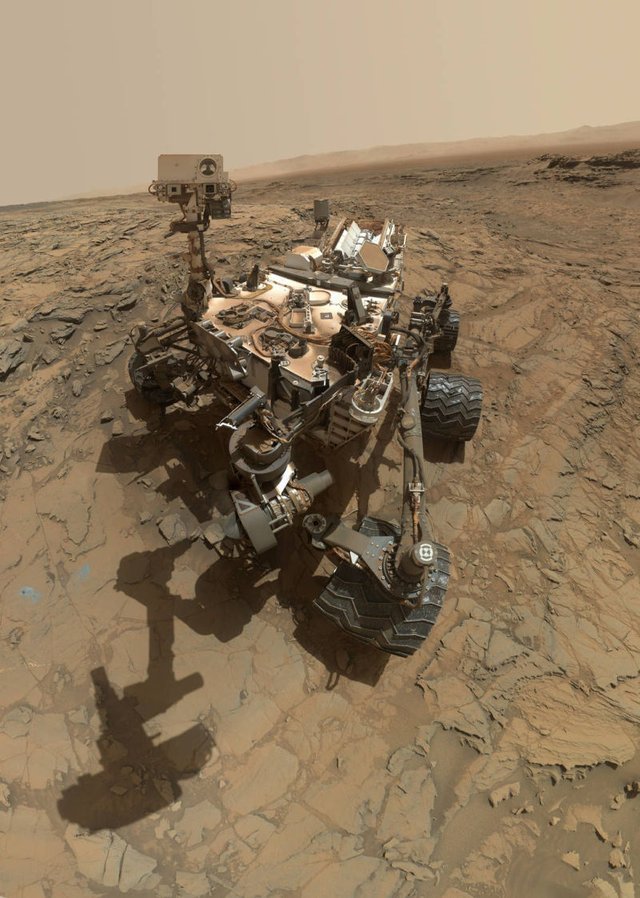The Curiosity rover has been exploring the surface of Mars for four and a half years, and is beginning to show signs of wear. NASA has now observed two small breaks in the left center wheel tread - a new level of damage for an aging machine.

Curiosity has six aluminum wheels, each 20 inches in diameter. The cracks in the left center wheel are the first to significantly damage some of the 19 zigzag lines that make up the treads of each wheel, and support the 900 kg of the vehicle.
NASA's mobile laboratory arrived on Mars on August 6, 2012. Towards the end of 2013, the rover encountered a zone of sharp rocks that eventually overstretched its wheels, forcing NASA technicians to alter The planned route in search of more friendly lands.

Jim Erickson, project manager at Curiosity, says the wheels are now "approaching a wear and tear," but "it is part of the expected life cycle" and "does not change our scientific plans or diminish our chances of studying the mineralogy more Mount Sharp High ".
To date, Curiosity has traveled 16 kilometers. It may seem like little to a robot that has taught us so much about the past of the red planet, but in fact it is twice as much as planned for its main mission: to study whether the Mount Sharp region ever met the environmental conditions necessary for microbial life ; If Mars harbored life.
Curiosity now examines sand dunes midway through a geological unit known as Murray Formation. Their shoes are old, but the indefatigable robot continues to provide crucial data on the neighboring planet. NASA believes the vehicle will reach all destinations planned for the mission.